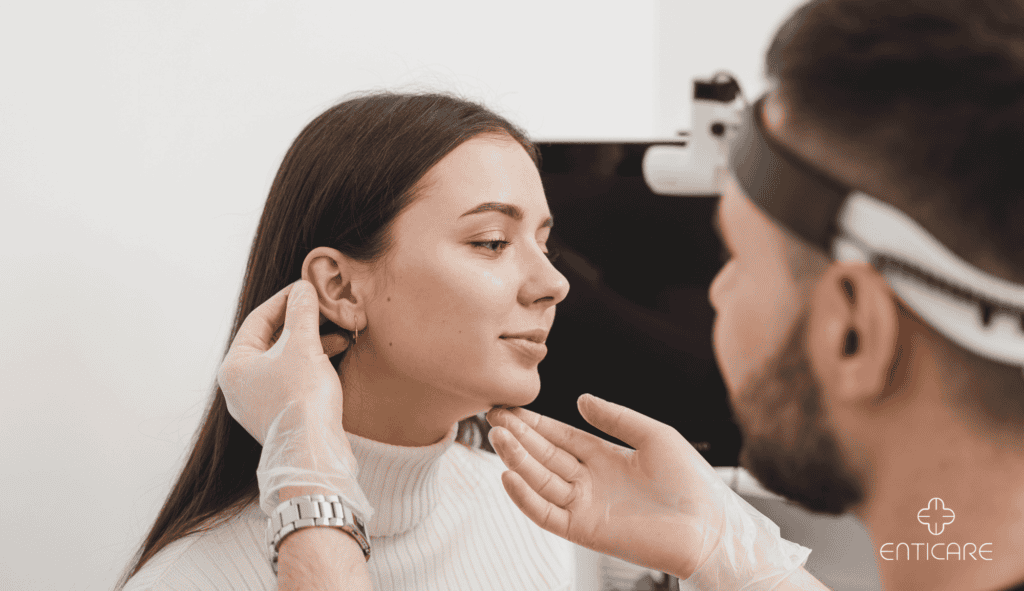Early intervention for children who are deaf or hard of hearing plays a crucial role in shaping their ability to communicate and thrive. Whether a child has partial hearing loss or is completely deaf, early support can make a tremendous difference in language development, social skills, and overall quality of life. In this blog, we’ll explore the importance of early intervention, the available strategies, and the benefits of getting help as soon as possible.

The Importance of Early Detection
Early identification of hearing loss is essential to ensure children receive the necessary support as soon as possible. Delayed identification can lead to challenges in speech, language development, and social skills.
Newborn Hearing Screening
Hearing loss can be identified shortly after birth through newborn hearing screenings. These tests are typically conducted in hospitals within the first few days of life and can detect congenital hearing loss. If the screening indicates potential hearing issues, follow-up testing will help confirm the diagnosis.
Newborn hearing screenings are a crucial part of early identification, which is essential for timely intervention and better developmental outcomes, especially in enhancing language skills. These screenings are the first step in identifying children who may need to be enrolled in an early intervention program.
Developmental Milestones and Red Flags
Parents should be aware of developmental milestones related to hearing and speech. Babies typically respond to sounds, turn their heads toward voices, and begin making vocal sounds within the first few months. If these milestones are not being met, it is essential to seek an evaluation from a healthcare professional.
Recognizing these red flags early can lead to timely enrollment in an early intervention program.
The Role of Audiologists in Early Diagnosis
Audiologists play a critical role in diagnosing hearing loss in children. These professionals use a variety of tests to assess hearing ability, from auditory brainstem response (ABR) to otoacoustic emissions (OAE) tests, depending on the child’s age. Identifying hearing loss early allows parents and professionals to begin interventions that support speech and language development.
Additionally, audiologists are integral to the referral process, guiding families through initial referral, intake, and eligibility assessments, which are crucial steps within the early intervention (EI) framework.
Types of Hearing Loss in Children
Understanding the types of hearing loss can help parents make informed decisions about the most appropriate interventions for their child. Understanding the type of hearing loss can also help in selecting the most appropriate early intervention program.
Early intervention is crucial for families with deaf or hard-of-hearing babies, as it can significantly impact their development and communication skills.
Conductive Hearing Loss
Conductive hearing loss occurs when there is a problem in the outer or middle ear that prevents sound from traveling efficiently to the inner ear. Common causes include ear infections, fluid in the middle ear, or structural abnormalities. Conductive hearing loss is often temporary and may be treated with medical interventions such as surgery or hearing aids.
Sensorineural Hearing Loss
Sensorineural hearing loss results from damage to the inner ear or the auditory nerve. This type of hearing loss is usually permanent and can vary in severity. Children with sensorineural hearing loss may benefit from hearing aids or cochlear implants, as well as early intervention services to support language development.
Mixed Hearing Loss
Mixed hearing loss is a combination of conductive and sensorineural hearing loss. Children with mixed hearing loss may require a combination of medical treatments, hearing devices, and speech therapy to address both types of hearing loss.
Early Intervention Strategies for Deaf and Hard of Hearing Children
Early intervention programs offer a wide range of strategies and tools to help children with hearing loss develop communication skills and succeed in life.
An early intervention system provides individualized services aimed at promoting essential developmental areas such as communication and social-emotional skills, particularly during the critical period of birth to three years old.
Hearing Aids and Assistive Devices
For children with partial hearing loss, hearing aids can amplify sounds and improve their ability to hear speech and environmental sounds. Assistive devices, such as FM systems, can also enhance a child’s hearing in noisy environments, like classrooms, by amplifying the teacher’s voice.
Cochlear Implants
Cochlear implants are an option for children with severe to profound sensorineural hearing loss who do not benefit from hearing aids. These devices bypass the damaged part of the ear and stimulate the auditory nerve directly. Early implantation can significantly improve a child’s ability to hear and process sounds, leading to better language outcomes.
Speech and Language Therapy
Speech and language therapy helps children develop the communication skills they need to interact with others and succeed academically. These therapies focus on teaching children to understand and produce language, whether through spoken words or sign language, including American Sign Language. Early intervention speech therapy can help bridge the communication gap for children who are deaf or hard of hearing.

The Benefits of Early Intervention for Hearing Loss
Early interventions lead to better outcomes for children with hearing loss. The benefits of early intervention extend beyond communication and into every aspect of a child’s development.
Language and Cognitive Development
Children learn language by listening to the people around them. Early intervention helps ensure that children with hearing loss have access to language, whether through amplification, sign language, or other methods. Research shows that children who receive early intervention services are more likely to develop age-appropriate language skills, which are crucial for cognitive development and academic success. Using both ASL and spoken language can further enhance language development by providing multiple modes of communication.
Social and Emotional Growth
Children with hearing loss often face challenges in social settings due to communication barriers. Early intervention can help them develop the skills needed to interact with peers and build relationships. Social and emotional support programs can also teach children and their families how to navigate the emotional aspects of hearing loss.
Improved Academic Performance
Without intervention, children with hearing loss may struggle in school due to difficulties with language comprehension and communication. Early intervention equips them with the tools they need to succeed academically. By providing access to specialized education services and support, children with hearing loss can keep up with their peers in the classroom.

The Role of Family in Early Intervention
Families play an essential role in a child’s success when it comes to managing hearing loss. Early intervention programs work best when parents and caregivers actively participate in their child’s development.
A service coordinator is assigned to families upon referral, facilitating initial contact, conducting assessments, and ensuring that services outlined in the Individual Family Service Plan (IFSP) are delivered in a timely manner.
Parent Education and Support
Many early intervention programs include parent education and support services. These programs help parents understand their child’s hearing loss, learn how to use hearing aids or cochlear implants effectively and develop strategies for communicating with their child. Empowering parents with knowledge can improve the child’s overall outcomes.
Additionally, delivering services in a timely manner according to the Individual Family Service Plan (IFSP) is crucial to ensure that families receive the necessary support promptly.
Building a Strong Support Network
Families of children with hearing loss benefit from building a strong support network. This can include audiologists, speech therapists, teachers, and other families with similar experiences. A supportive community provides valuable resources and encouragement, helping families navigate the challenges of hearing loss together.
Encouraging Bilingual Communication
For children who are deaf or hard of hearing, it’s important to encourage bilingual communication strategies that include both sign language and spoken language, if possible. This approach ensures children have multiple ways to communicate, helping them succeed in a variety of social and academic settings.
Empower Your Child with Early Intervention for Hearing Loss
Early intervention for children who are deaf or hard of hearing is a critical step in ensuring their future success. By addressing hearing loss early, you can help your child develop essential communication skills, build social connections, and thrive academically. Don’t wait to seek support—early intervention can make all the difference. Early intervention services are part of the Individuals with Disabilities Education Act (IDEA).
If your child has been diagnosed with hearing loss or if you have concerns about their hearing, schedule a consultation with our hearing specialists today.
👉 Schedule your appointment here to begin your journey toward empowering your child’s future.

